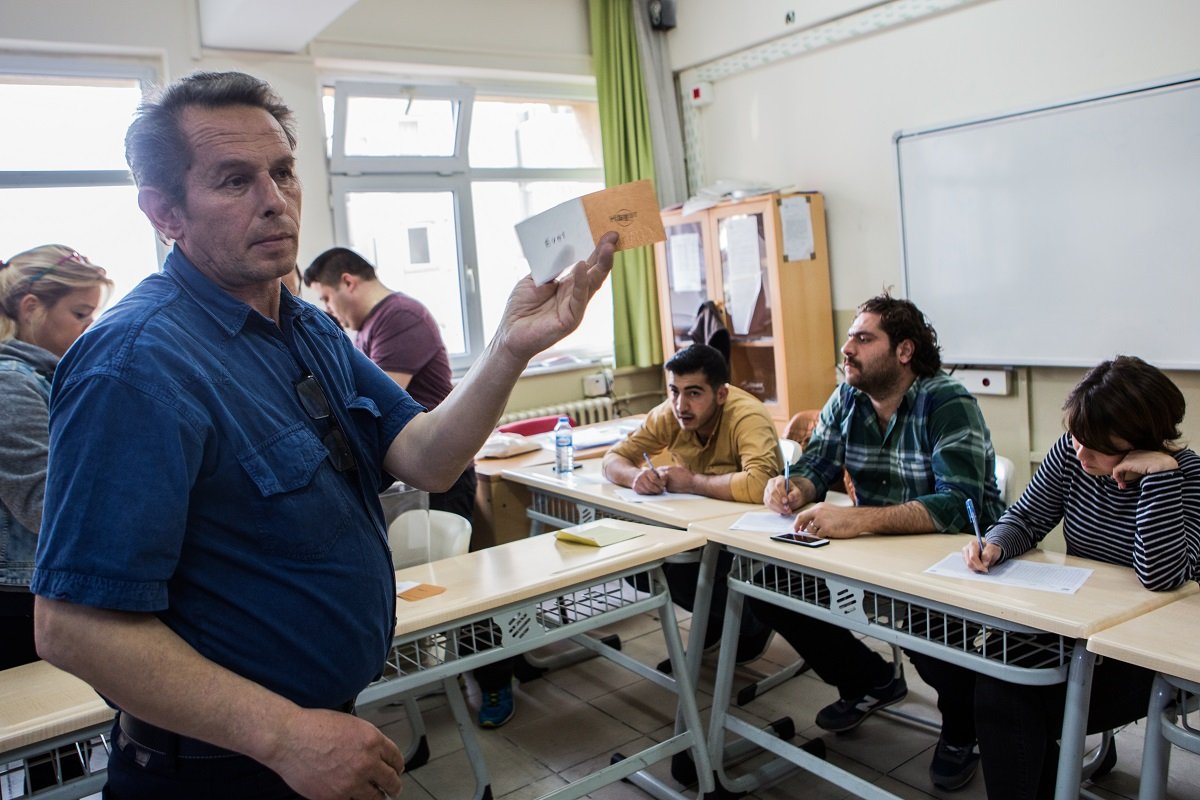The Organization for Security and Co-operation in Europe (OSCE) said on Monday that Turkey’s referendum on Sunday lacked equal opportunities, media coverage for the contesting sides and international standards for a fair election. However, Turkey’s autocratic President Recep Tayyip Erdoğan has slammed OSCE and said Turkey won’t recognize its report on the referendum.
In a statement on Monday, the joint mission of the OSCE’s Office for Democratic Institutions and Human Rights (ODIHR) and the Parliamentary Assembly of the Council of Europe (PACE) said the April 16 constitutional referendum in Turkey was contested on an unlevel playing field and that the two sides in the campaign did not have equal opportunities.
“In general, the referendum did not live up to Council of Europe standards. The legal framework was inadequate for the holding of a genuinely democratic process. On referendum day there were no major problems, except in some regions, however we can only regret the absence of civil society observers in polling stations,” Cezar Florin Preda, head of the delegation from PACE, said.
“A state of emergency should never be used to undermine the rule of law,” Preda added.
The OSCE said, in some cases, access for ODIHR observers during the opening and voting in polling stations was either denied or limited.
Turkey’s Supreme Election Board (YSK) issued instructions late in the day that significantly changed the ballot validity criteria, undermining an important safeguard and contradicting the law, said the statement.
According to Tana de Zulueta, head of the ODIHR, the referendum took place in a political environment in which fundamental freedoms essential to a genuinely democratic process were curtailed under the state of emergency, and the two sides did not have equal opportunities to make their case to the voters.
“Our monitoring showed the ‘Yes’ campaign dominated the media coverage and this, along with restrictions on the media, the arrests of journalists and the closure of media outlets, reduced voters’ access to a plurality of views,” Zulueta said.
According to the OSCE statement, the legal framework for the referendum in Turkey neither sufficiently provides for impartial coverage nor guarantees eligible political parties equal access to public media, and gives preference to the ruling party and the president in the allocation of free airtime.
“We observed the misuse of state resources, as well as the obstruction of ‘No’ campaign events. The campaign rhetoric was tarnished by some senior officials equating ‘No’ supporters with terrorist sympathizers, and in numerous cases ‘No’ supporters faced police interventions and violent scuffles at their events,” Zulueta said.
ERDOĞAN SAYS TURKEY WON’T RECOGNIZE OSCE REPORT ON REFERENDUM
However, Turkish President Erdoğan on Monday slammed the statement issued by the OSCE and said Turkey would not recognize the report. Speaking during an address to his supporters at the presidential palace in Ankara on Monday, Erdoğan said: “First of all, know yourself [OSCE]. We will neither accept nor recognize a report by you. We will continue on our own way.”
Turkey’s Foreign Ministry also slammed the OSCE in a statement on Monday, saying the OSCE’s reflections on the referendum results employ a biased and prejudiced approach and are also denunciatory. The foreign ministry said it was “unacceptable” to say that the poll fell short of international standards.
“.., the OSCE statement shows that the delegation came to Turkey with prejudices and it is also far from being impartial and reflects its prejudicial approach,” the foreign ministry said.
US SAYS NOTES CONCERNS OF OSCE IN TURKISH REFERENDUM
Meanwhile, the US State Department said on Monday it had taken note of concerns expressed by the OSCE regarding the referendum in Turkey on Sunday and that looked forward to its final report. Mark Toner, acting State Department spokesperson, said in a statement that it would withhold comment until the completion of a full assessment by the OSCE on the referendum, which the “yes” camp won by persuading only 51.4 percent of voters on a constitutional package that will expand President Erdoğan’s powers and switch Turkey to an executive presidency.
“We look forward to OSCE/ODIHR’s [Office for Democratic Institutions and Human Rights] final report, which we understand will take several weeks,” Toner said in the statement.
Nevertheless, US President Donald Trump has not hesitated to spoke by phone on Monday with Turkish President Erdoğan and congratulated him on “his victory” in Sunday’s referendum on a constitutional package that will switch the country to an executive presidency and substantially increase the power of the president.
Trump has become the first Western head of state to congratulate Erdoğan as only the leaders of Azerbaijan, Qatar, Guinea, Bahrain, Djibouti and the head of HAMAS called him immediately after the unofficial results were announced Sunday night.
President of the European Commission Jean-Claude Juncker, High Representative for Foreign Affairs and Security Policy/Vice-President of the European Commission Federica Mogherini and Commissioner for European Neighborhood Policy and Enlargement Negotiations Johannes Hahn issued a joint statement on Sunday and stated that “We take note of the reported results of the referendum in Turkey on the amendments to the Constitution, adopted by the Turkish Grand National Assembly on 21 January 2017. We are awaiting the assessment of the OSCE/ODIHR International Observation Mission, also with regard to alleged irregularities.” (SCF with turkishminute.com) April 18, 2017
















